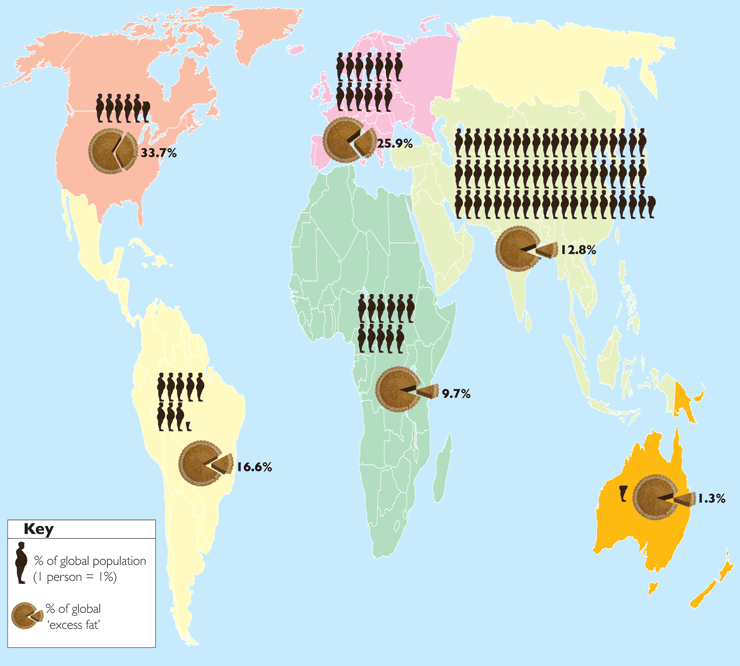
The human population is at risk of becoming too fat for the earth to handle, according to a study from the London School of Hygiene and Tropical Medicine. While population growth is often seen as the biggest concern when it comes to the world’s resources, the study argues that weight is a major issue too.
The study estimates the weight of the global population at 287 million tonnes, based on 2005 data. Of this, around 15 million is down to people being overweight and 3.5 million down to obesity. But as the map above shows, some regions are “significantly fatter than others,” says Neetzan Zimmerman on Gawker.com.
“North America was single-handedly responsible for a third of the world’s obesity. Compare that with Asia: 61% of the global population, but only 13% of its obesity.”
This matters not just because of health concerns, but because of the extra energy consumed by obese people. The real worry is that “the whole world is getting fatter”, as the study’s lead researcher Professor Ian Roberts told The Daily Telegraph. That could have a huge impact on energy needs. “If every country becomes as fat as the US, then in mass terms it’s like having an extra billion people on the earth or feeding another half a billion.”
But is the problem really that serious? Even if you take the study at face value, “just 6% of the total body weight of the human race is surplus”, says Lewis Page in The Register. Surely this isn’t such an issue when you reflect that human numbers are projected to grow by almost 30% in the next few decades? What’s more, the Body Mass Index (BMI) measure used is flawed.
The call for Britons and Americans to cut BMIs to Japanese levels “would cause more health problems” than it solves. “Americans or Britons would need to shed not just fat, but several inches of height to achieve Japanese-style BMIs”, says Lewis. “The only way for us to do that would be to starve and malnourish our children, preventing them growing as tall as their parents.”